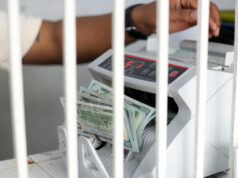BSP extends deadline for MSB registration
THE Bangko Sentral ng Pilipinas (BSP) has given more time for pawnshops, money changers and remittance agents to apply for fresh registrations after the regulator extended the deadline until end-April.
In a statement over the weekend, the central bank said registrations issued to money service businesses (MSBs) will remain valid until April 30 after the Monetary Board last week agreed to a second extension.
The highest policy-making body of the BSP approved the extension of the “transitory period” covering the registrations of pawnshops, money changers, remittance and transfer companies, and foreign exchange dealers. Had it not been extended, all registrations will be rendered invalid by Wednesday.
“The three months extension will provide pawnshops and MSBs a grace period to file their application for re-registration with the BSP,” the central bank said, as it noted that the non-bank service providers must secure their authority to operate over the next three months.
Failure to do so will mean that their existing registration and operation permits will be “automatically revoked or cancelled.”
BSP Circular 942 issued in January last year requires all MSBs — including international remittance service networks and their sub-agents or partner firms in the Philippines — to register with the BSP. These cash agents are subject to additional documentary requirements, as well as streamlined internal protocols after the central bank decided to bring the standards closer to integrity checks imposed on banks.
This is the second extension granted by the regulator for MSBs, as the original circular previously set a June 2017 deadline for them to submit additional documents in order to update their registration status.
BSP Governor Nestor A. Espenilla, Jr. has said that they are consciously tightening rules on non-bank and parallel markets in order to curb dirty money transactions.
The changes followed a year after a remittance company was discovered to have been a key player in the cleansing of $81 million funds stolen from the Bangladesh central bank, which were then coursed through a domestic bank and local gaming tables before these were pocketed by still-unidentified thieves.
New guidelines imposed on remitters and money changers also require their board of directors and owners to craft internal policies that would establish standard operating procedures for its daily business, as well as protocols for internal control and record-keeping in order to deter shady transactions. — Melissa Luz T. Lopez



